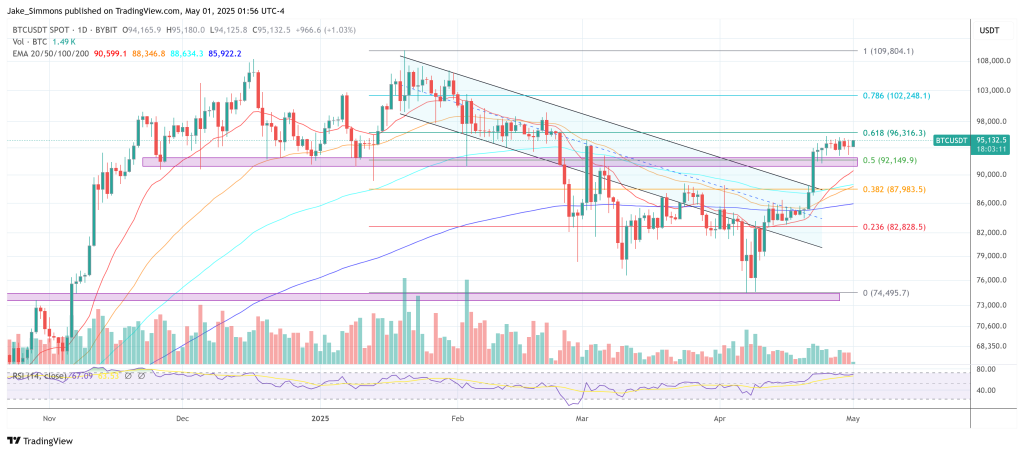In a conversation with podcast host Anthony Pompliano, Michael Ellis—recently sworn in as Deputy Director of the US Central Intelligence Agency (CIA)—offered an unusually forthright assessment of Bitcoin’s role inside the national-security apparatus.
Why The CIA Is Excited About Bitcoin
Ellis began by acknowledging the myth that Bitcoin is fully anonymous. “People may have thought Bitcoin was anonymous,” he told Pompliano, “but I’d say it’s pseudonymous, right? It’s not truly anonymous.” That distinction, he continued, has flipped early criminal enthusiasm into an unexpected boon for investigators. “We are … excited as well because … there’s a lot of work that we do with law enforcement to try to track illicit crypto payments by bad actors.”
The Deputy Director refused to single out Bitcoin as uniquely dangerous. “Bad actors, whether they’re drug cartels or terrorist groups or outlaw regimes, use cryptocurrency, but they used other tools as well,” he said, listing “dollars,” “cars,” and even “toner cartridges for their printers” as mundane equivalents. “Doesn’t mean we say we should ban all of those.”
Ellis then delivered the line that will echo through policy circles: “Bitcoin is here to stay. Cryptocurrency is here to stay.” Institutional adoption, he argued, is now an irreversible “trend … one that this administration has obviously been leaning forward into.” For the intelligence community, the stakes are geopolitical. “It’s another area of technological competition where we need to make sure the United States is well positioned against China and other adversaries … we need to make sure that we are a leader in these fields internationally and not a laggard.”
Pompliano pressed him on the dual-use nature of open-source payment rails. Ellis embraced that framing. “We use technology as a tool, and Bitcoin and other cryptocurrencies are another tool in the toolbox. It’s also a target,” he explained, noting that the blockchain ledger can simultaneously “disrupt our adversaries’ use” of funds and “collect more intelligence to gather more information about them.”
Behind the operational talk lies a culture war playing out inside Langley. “There’s a little bit of a generational shift and a cultural shift going on that Director Burns and I are leading the way on,” Ellis conceded. “Not everyone in government … has these attitudes around new technologies. People are sort of trapped in an older mindset sometimes and we have to break through that and realize this idea that cryptocurrency is for people who have something to hide— that’s just not right.”
Pompliano laughed that Ellis sounded like “the in-house Bitcoiner.” If the Deputy Director’s remarks prove anything, it is that the CIA no longer regards Bitcoin merely as a curiosity on the dark web. Instead, the agency views it as a permanent fixture of global finance—simultaneously a surveillance vector, an intelligence resource, and, perhaps, a competitive arena in which national power will be measured.
At press time, BTC traded at $95,132.









